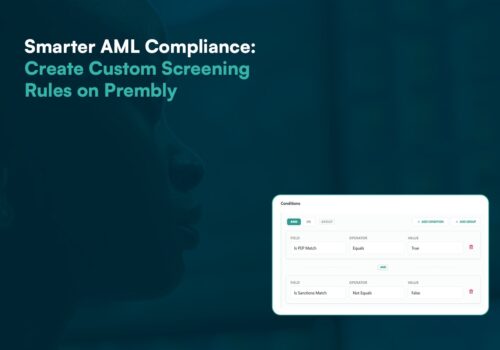In this comprehensive guide, you will find expert tax filing tips, strategies to maximise deductions, updates on tax law changes, and effective tax planning techniques to help both individuals and businesses reduce tax liabilities. Whether you are filing your income tax return, managing LLC taxes, or planning for retirement, this guide provides actionable insights and practical examples to help you prepare accurate tax returns, understand the required forms, and implement advanced tax planning strategies.
How Do You Prepare and File Your Taxes Accurately?

Begin by organising your financial records and verifying all income details. Methodical record keeping digital copies of receipts, invoices, and bank statements, can help reduce errors considerably. Using cloud-based accounting software can streamline the process by consolidating your financial data and reducing error rates. Consult professionals or use reputable tax software to ensure your deductions and credits are correctly computed.
Which Tax Forms Are Required for Different Taxpayers?
Individuals usually file Form 1040 (or its equivalent if filing in another country), while business owners, including those with LLCs, may need Schedule C with Form 1040 (or its equivalent if filing in another country). Self-employed individuals might also require Form 1099 and Schedule SE for self-employment tax. It is essential to verify your filing status (single, married filing jointly, or head of household) as each has corresponding forms and schedules required by the IRS.
When Are the Critical Tax Filing Deadlines Each Year?
The individual tax filing deadline is generally April 15, with a possible six-month extension. Businesses may have different deadlines based on their fiscal year. Maintaining a tax calendar with filing dates and quarterly estimated payment due dates is vital to avoid penalties and interest. Regular IRS updates ensure you remain compliant with any shifts in deadlines.
What Are the Best Tax Software Options for Filing Taxes?
Leading tax software such as TurboTax, TaxAct, and H&R Block offer user-friendly interfaces, robust error-checking, and up-to-date tax law integration. They can improve filing accuracy by automating data entry from bank accounts and often provide live support from tax professionals, which helps resolve disputes quickly.
How Can Small Businesses Maximize Tax Deductions Effectively?

What Are Common Tax Deductions Available to Small Businesses?
Small businesses can lower their tax burden by claiming deductions for ordinary and necessary business expenses. Typical deductions include office supplies, advertising costs, employee wages, travel expenses, and home office expenses. By keeping detailed records, a small business may reduce its taxable income by 20–30%.
How Does the Home Office Deduction Work for Small Business Owners?
If you use part of your home exclusively as a workspace, you can claim a portion of household expenses like mortgage interest, utilities, and rent. The deduction is generally based on the square footage used for business. Many professionals recommend the simplified method offered by the IRS, which allows a deduction of $5 per square foot up to a set maximum.
What Is the Qualified Business Income (QBI) Deduction and Who Qualifies?
This deduction allows eligible small business owners and self-employed individuals to deduct up to 20% of their qualified business income, provided the income is not subject to self-employment tax. Careful planning is needed to meet income thresholds and phase-out ranges, but it can boost cash flow and support business growth.
How Can Startups Benefit From Tax Deductions?
Startups can ease early financial pressures through deductions such as R&D credits and startup cost amortization. These deductions can free up capital for operational and marketing efforts and may include enhanced benefits for technology investments or product development costs.
What Are the Latest Tax Law Changes and How Do They Affect You?

Key Updates in Federal Tax Legislation?
Recent federal tax legislation includes adjustments to tax brackets, modifications to certain deductions, and updates to credits like the Child Tax Credit and Earned Income Tax Credit (EITC). Increased standard deductions and higher income thresholds mean that less income is taxable. New capital gains and dividend tax rate provisions could require a review of your investment strategy.
How Do New Tax Laws Impact Small Businesses Specifically?
Small businesses face changes in expense deductions and depreciation schedules. For example, bonus depreciation may now allow 100% expensing on qualifying property, and expanded health care credits could benefit companies providing employee benefits. Consulting a tax professional can help you adjust strategies to capitalise on these changes.
What Changes Should Individual Taxpayers Know?
Individuals need to note adjustments in income thresholds, revised standard deductions, and modified limits on certain itemised deductions. Changes to retirement account contribution limits and the taxation of investment income also affect tax liabilities. Staying informed and planning accordingly can help maximise available credits.
Where Can You Find Reliable Updates and Resources on Tax Law Changes?
Official IRS publications, reputable financial news services, and specialised tax advisory websites offer reliable updates. Websites like Bloomberg Tax, Tax Notes, and resources from professional organisations such as the American Institute of CPAs provide in-depth analysis of ongoing tax law changes.
Which Tax Planning Strategies Help Minimise Tax Liabilities Year-Round?

What Are Effective Tax Planning Techniques for Individuals?
Proactive tax planning includes regular reviews of income and expenses to identify opportunities for tax deferral or advantage. Strategies such as contributing to tax-advantaged retirement accounts (IRAs or 401(k) plans), diversifying investments, and making charitable contributions can help reduce taxable income. Regular consultations with a tax professional ensure readiness for mid-year adjustments.
How Can Small Businesses Implement Proactive Tax Planning?
Small businesses can benefit from integrated accounting systems, which simplify recordkeeping and facilitate regular financial reviews. Setting aside funds for quarterly estimated taxes, properly classifying expenses, and planning depreciation schedules can lead to considerable tax savings. Engaging an external tax advisor can also reveal strategic opportunities.
How Does Retirement Planning Influence Your Tax Obligations?
Retirement planning helps reduce current taxable income while securing long-term wealth. Contributions to tax-deferred accounts lower present taxes, and proper portfolio adjustments in light of changing tax laws can minimise tax impact during withdrawals, enhancing overall financial stability.
What Investment Planning Tips Reduce Tax Burdens?
Invest in tax-efficient vehicles like index funds or tax-managed mutual funds to lower dividend income and hence reduce current taxes. Tax-loss harvesting, where losses offset gains, can also decrease overall tax liability. Aligning investment timeframes with long-term capital gains rates often results in additional savings.
What Tax Credits Are Available for Individuals and How Do You Qualify?

How Does the Earned Income Tax Credit (EITC) Work?
The EITC is a refundable credit aimed at easing the tax burden on low-to-moderate income workers. To qualify, income must fall within approved limits and meet criteria regarding filing status and number of qualifying children. This credit can provide a refund even when no tax is owed.
What Are the Requirements for the Child Tax Credit?
Available for eligible taxpayers with dependent children under 17, this partially refundable credit varies based on income. Recent changes have expanded its benefits for lower-income families, making it a significant tool for tax relief.
Which Education Tax Credits Can You Claim?
Credits like the American Opportunity Tax Credit and Lifetime Learning Credit reduce the tax owed by offsetting education expenses such as tuition, fees, and course materials. Eligibility depends on income and enrollment status, with the American Opportunity Tax Credit offering up to $2,500 per student annually.
Are There Energy Tax Credits for Homeowners?
Homeowners can take advantage of credits for renewable energy solutions and energy-efficient improvements, such as solar panels or energy-efficient windows. These credits, often partially refundable, can lower the net cost of upgrades while promoting environmental sustainability.
How Do Tax Audits and Penalties Affect Taxpayers and How Can You Avoid Them?

Photo by Thirdman
What Triggers an IRS Tax Audit?
Audits may be triggered by discrepancies in reported income, unusually high deductions relative to income, or errors identifiable through electronic filing. Maintaining accurate records and careful documentation of high-risk items like self-employment income can reduce audit likelihood.
How Can You Prepare for and Respond to a Tax Audit?
Keep all relevant financial documents organised and review your tax return for consistency. In case of an audit, promptly contact a tax professional and cooperate with the IRS. A clear paper trail and transparent recordkeeping are your best defences.
What Are the Most Common Tax Penalties and How Can You Prevent Them?
Late filing fees, late payment interest, and underpayment penalties are common risks. To avoid these, meet filing deadlines, make timely estimated payments, and review your return for accuracy. Using robust tax software and routine consultations with tax experts can help maintain compliance and prevent penalties.
Where Can You Find Trusted Tax Resources and Professional Help?

Photo by Thirdman
How Do Tax Professionals Assist With Complex Tax Issues?
Tax professionals analyse your situation to identify eligible deductions and credits, interpret complex tax laws, and develop tailored strategies. They also represent you during IRS audits or disputes, which can be especially valuable in complex situations like multi-state filings.
What Online Tools and Calculators Help With Tax Planning?
Numerous online tools—available on IRS sites and reputable tax advisory platforms—can help estimate tax liabilities, simulate filing scenarios, and identify potential deductions. These resources provide real-time data and step-by-step guidance for effective tax planning.
How Can Educational Content Improve Your Tax Knowledge?
Educational content from trusted financial news outlets, government websites, and expert blogs can keep you updated on evolving tax laws and planning strategies. Webinars, online courses, and detailed guides can empower you to make informed decisions, enhancing both savings and overall financial security.
Frequently Asked Questions
Q: What is the importance of accurate recordkeeping for tax filing? A: Accurate recordkeeping supports every deduction and credit claimed, reducing the risk of errors and IRS audits.
Q: How often should small business owners review their tax strategies? A: Small business owners should review their strategies quarterly to adjust to regulatory changes and optimise deductions.
Q: Can tax software significantly reduce filing errors? A: Yes, robust tax software automates data entry and error checking, greatly reducing filing mistakes.
Q: How do tax credits differ from deductions? A: Tax credits reduce your tax liability dollar-for-dollar, while deductions lower your taxable income.
Q: Is professional tax advice worth the cost for small businesses? A: Professional tax advice can lead to significant savings and help avoid mistakes, making it a valuable investment for many small businesses.







